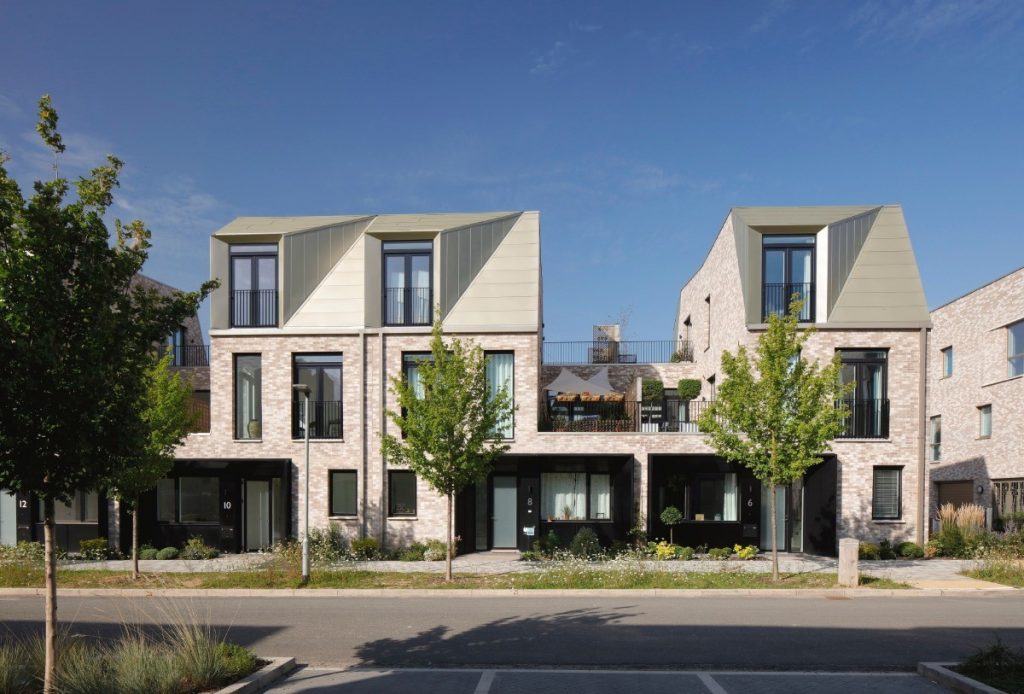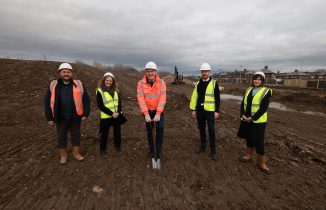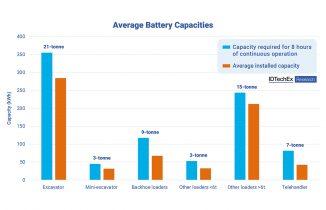
Recent recipient of the Housing Design Awards’s 2021 ‘Building with Nature’ award for its Knights Park development in Cambridge, Hill Group, has committed its support to tackle climate change ahead of the upcoming 26th UN Climate Change Conference of the Parties (COP26) in Glasgow.
COP26 will focus on the global commitments of nations to reducing carbon emissions and reversing ecological and biodiversity decline. As a leading privately-owned housebuilder, Hill recognises that it has a part to play in helping the UK meet its commitments by building low carbon, resilient and safe homes constructed sustainably and designed to ensure buyers consume fewer resources and enjoy a closeness to nature that helps to create sustainable communities and promote the wellbeing of residents.
Hill has committed to achieving net-zero carbon in its Scope 1 and 2 business operations by 2030 and net-zero operational carbon in the homes they build by 2030, twenty years ahead of the UK’s broad 2050 net-zero carbon target. Additionally, Hill has committed to achieving Biodiversity Net Gain on all its future land-led developments.
Hill has already modelled a range of house types and apartment layouts to interrogate CO2 reduction performance standards required for delivering future homes. This will see the phasing out of fossil fuels, with electricity becoming the primary low-carbon energy source powering air source heat pumps. Photovoltaics and battery storage are likely to be part of the optimal solution too.
Hill’s solutions will include improved building fabric performance, reduced embodied carbon of materials, increased off-site manufacture, increased air-tightness, better thermal bridging and supply chain deliverability. In addition, increased reliance on electricity as the primary energy source, and increased need for electricity for car charging points, is already causing Hill to look at grid capacity and planning additional sub-stations into development layouts.
Brendan Ritchie, Head of Sustainability at Hill Group, comments: “At Hill, we are always keen to be at the forefront of any industry changes, and we already have live projects at design and early construction stage featuring a range of house and apartment types which will meet the expected Future Homes Standard and deliver ‘net-zero ready’ homes several years ahead of the anticipated regulatory timescale.
“But our solutions must ensure that homes remain affordable to run. We must avoid fuel poverty as an unintended consequence of the drive towards zero carbon homes.
“We have lots to do to be ‘Future Homes’ and zero-carbon ‘ready’ as a sector. However, at Hill, we are confident that our pioneering approach alongside the national background of continual de-carbonisation of the electricity grid will help us find optimal solutions”.
Two of Hill’s most recent developments, Knights Park and Agar Grove, have raised the bar in terms of placing emphasis on sustainable living and placemaking.
Knights Park
Awarded the 2021 Housing Design Award in September 2021 for ‘Building with Nature’, Knights Park in Cambridge has set the standard for sustainable living. Located in the newly created urban extension of Eddington, Knight’s Park places resident wellbeing, sustainability and ecology at the forefront of the design. It uses innovative, seamlessly integrated construction methods to minimise environmental impact and is based around a neighbourhood principle for ‘living lightly’.
The new houses include a wide range of sustainable features from high performing robust insulation and triple glazing to photovoltaic panels and mechanical ventilation in addition to heat recovery systems. Overall, it has been designed and constructed to Level 5 of the Code for Sustainable Homes
The energy centre in Eddington delivers heat and hot water to residents, with significant system efficiencies reducing C02 and energy wastage. In addition, the development-wide rainwater harvesting and sustainable urban drainage system is currently the largest in the UK and recycles rainwater through natural drainage features before filtering it and returning it to Hill’s new homes for use in washing machines and flushing toilets.
An underground refuse storage system negates the need for unsightly wheelie bins and promotes recycling, and the development was designed to prioritise pedestrians and cyclists, with interconnecting foot and cycle paths linking to the nearby City centre. Car parking is tucked away from sight in underground areas, creating a largely car-free environment at street level.
Swales and verges create havens for wildlife and insects to flourish. Ecology, biodiversity, and enjoyment of plentiful open green spaces deliver a proximity to nature, a key characteristic of the development.
Agar Grove
This mixed-tenure Estate Regeneration scheme in Agar Grove is one of the largest projects in Camden’s Community Investment Programme. The homes at Agar Grove are certified to a gold Passivhaus standard, and the overall development is the largest Passivhaus regeneration development in the UK.
Passivhaus is a standard which requires high levels of insulation and triple-glazed windows forming an air-tight shell, delivering homes that are significantly lighter on the grid. Each home also has a ventilation system which continually provides a supply of clean air while removing stale, humid air. Passivhaus is an internationally recognised, sustainable building standard which results in high levels of energy efficiency and internal comfort including temperature, humidity and air quality.
Hill worked closely with the project’s architects and Passivhaus certifiers to ensure that the build quality at Agar Grove was achieved at every stage. To achieve the standard, Agar Grove required airtightness measurement of 0.6 air changes per hour, or less at a pressure of 50 Pascals. This phase of the project achieved a result of 0.5 air changes per hour.
Agar Grove has won several sustainability awards and has been praised by an international panel of architecture, urban design and planning experts for its “radical nature, saving residents money on energy bills and also encouraging them to live sustainably”, and for having community regeneration and social sustainability at the heart of the project.





